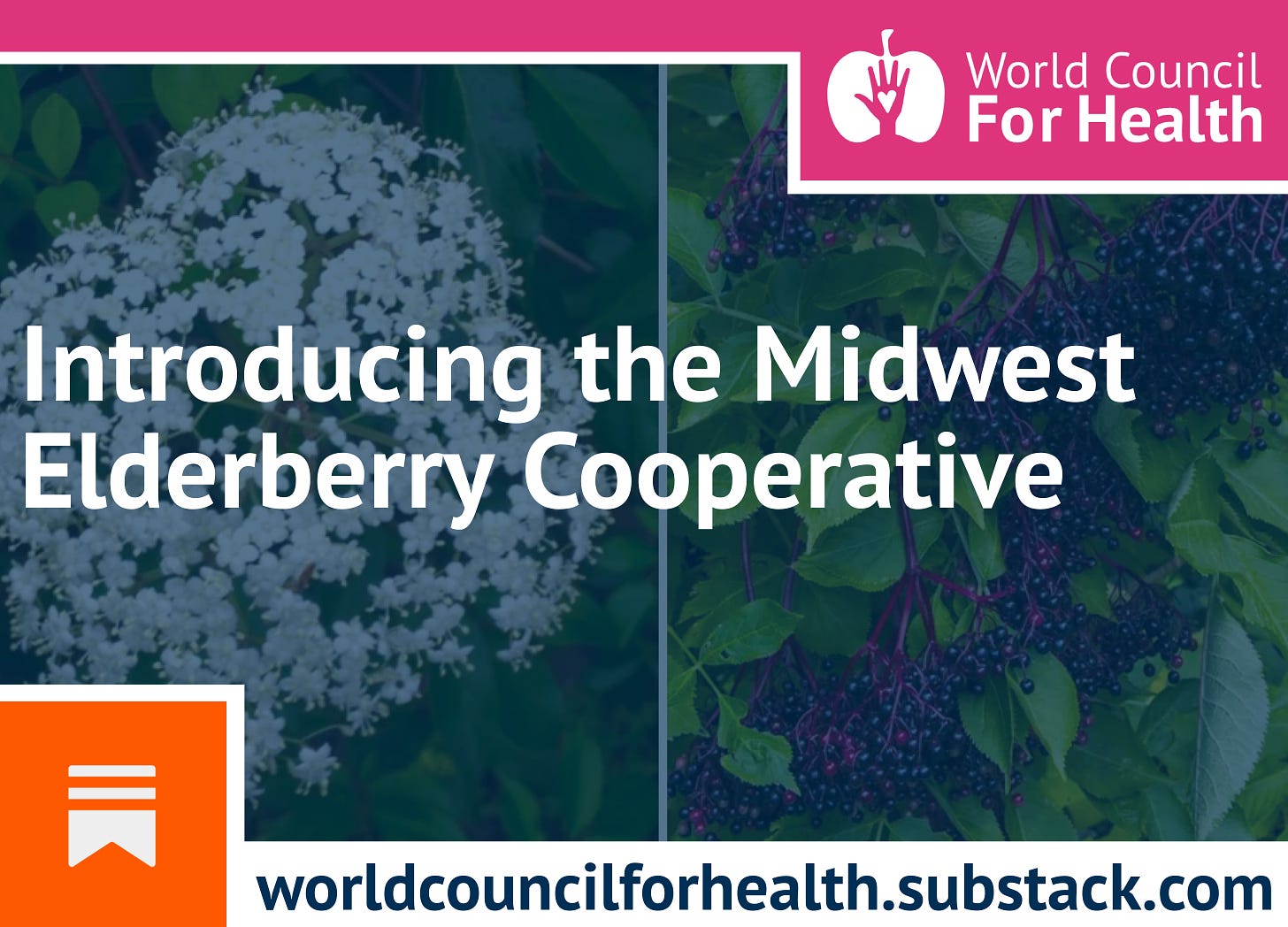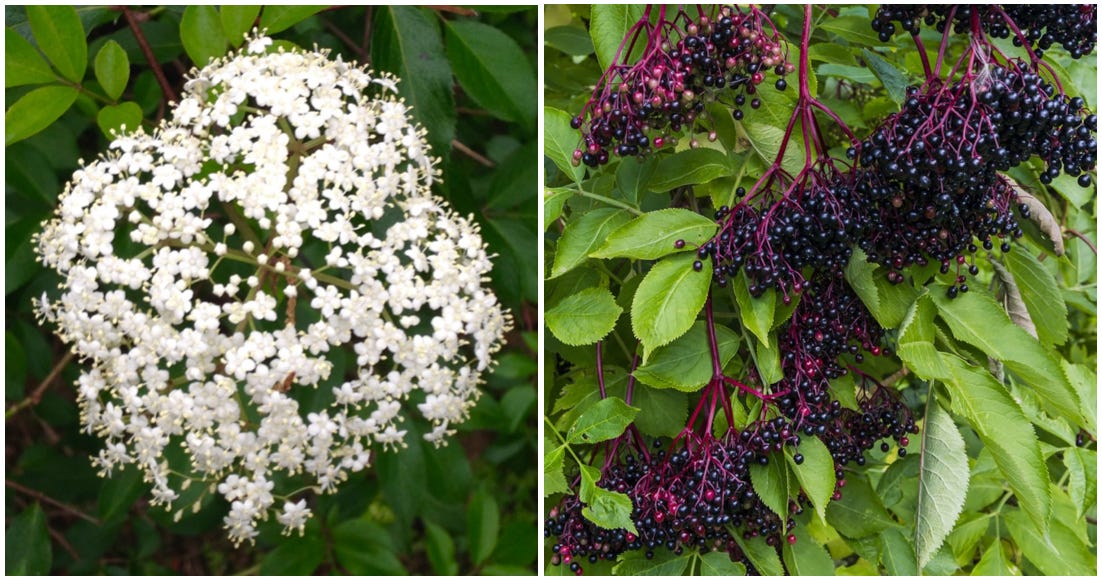Introducing the Midwest Elderberry Cooperative
What is important to me is the quality of life of the people working the land, where people are valued as well as the land and the product for our customers. - Chris Patton
The Midwest Elderberry Cooperative is a new coalition partner of the World Council for Health (WCH). During the Better Way Today session on 5 February 2024, Zoe Strickland met up with Chris Patton, a member of the Cooperative, to talk about the amazing American elderberry and efforts to grow it commercially.
Natural healing in the family
Chris Patton and his grandfather before him have long been involved in natural healing. His grandfather was raised by a Blackfoot family after his mother died, so was influenced by native American herbal traditions. Later he went on to become a naturopath and masseur. Chris also grew up close to nature on a farm, which shaped his appreciation for the earth, for growing things, and for wholesome foods. As is the case with many of us, both Chris and his grandfather were drawn to the healing arts by their own health challenges.
Today, in his retirement, Chris is working with farmers across the USA to explore the agricultural potential of a native North American species of elderberry. Both European and American elderberry plants nutrient-dense flowers and berries, but the American varieties grow on canes rather than on trees and their berries are about one sixth to a quarter the size of European elderberries.
Benefits of elderberry
Chris considers the elderberry to be a really big gift in a tiny package!
Because of its numerous health benefits, elderberry has a long history of being used in natural healing. It is known to boost immunity, alleviate allergies, protect against bacterial infections, lower blood pressure, moderate digestion, help with weight loss, prevent the development of diabetes, and slow the development of cancer. It also has antiviral and anti-inflammatory properties, which should boost its popularity! From a nutritional point of view, elderberries are high in vitamin C, phosphorus, calcium, and iron, as well as anthocyanins and other polyphenols.
Most research into the benefits of elderberry have been conducted in Europe, but in 2013 an international symposium on elderberry was held at the University of Missouri, with researchers from 17 countries delivering over 50 papers. This gathering generated a great deal of interest in potential uses of American elderberry.
A new agricultural crop
While elderberry has been cultivated for hundreds of years in Europe, it was only in 2000 that the University of Missouri started working with US farmers to develop American elderberry as a commercial crop. A benefit of cultivating elderberry is that the nutrient density of these berries is about twice those collected in the wild due to soil enrichment.
The North American elderberry grows across the continent from the Rocky Mountains to the Atlantic in a wide range of soils and climates. It therefore has many natural varieties and a great deal of genetic diversity, providing opportunities for the production of cultivars.
Of course, there are some challenges, one being that the berries are generally harvested and de-stemmed by hand, which increases production costs. But machinery and techniques are being developed to reduce labour costs so that American elderberries can compete with the well-established European product. Market development is also taking place, and production and supply chain infrastructure is being scaled up.
Chris is cautious about going ‘too big too soon’ with elderberry production, however. He sees this crop as providing an opportunity to make smaller farms more productive and recommends trying out the new crop on a small scale first. It is also important that farmers secure contracts for harvest before investing in planting.
Most of all, Chris hopes that elderberry cultivation will help to revive rural economies and communities, improving the quality of life of the people working the land, while providing nutrient-dense flowers and berries that have healed humanity and nature since the earliest ages.
Listen to Chris sharing an engaging tale of elderberries and natural healing here.
If you find value in this Substack and have the means, please consider making a contribution to support the World Council for Health. Thank you.






Thanks for this info! Glad to hear of it!
I couldn't resist...Your mother was a humpster and your father smelled of elderberry.